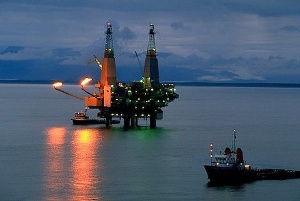A delegation of the Parliamentary Select Committee on Mines and Energy, at the weekend returned from Kuala Lumpur, Malaysia where they held discussions on how to improve the local industry.
They were engaged in a number of meetings on the promotion of best practices with the Malaysian Parliament as well as Officials of Petronas, the Malaysian National Oil Company, which operates as a global giant in oil exploration, production and distribution in 40 years.
Currently the Company employs about 50,000 people nationwide and contributes more than 40 per cent of the country’s annual budget.
The delegation was led by Mr Cletus Avoka, Chairman of the Committee as well as Mahama Toure Naser, Joseph Cudjoe and Muntaka Mubarak Mohammed who were supported in their deliberations by Ghana’s High Commissioner to Malaysia, Mr Benjamin Clement Eghan.
Other members were officials from the Energy Ministry and Ghana National Petroleum Corporation (GNPC)
Mr Avoka told journalists that the Committee had already toured similar institutions in Norway and Trinidad and Tobago and members would soon present a proposal to the house for consideration.
“We are looking at each of the clauses and compare them to other best practices elsewhere before making the required recommendations to be presented to parliament for the necessary amendments to be made,” he said.
Mr Avoka said although a lot of information has been gathered from the various study tours, it should be noted that different political systems operate in other jurisdictions and therefore there are different understanding of the issues.
He however expressed the hope that a workable document would be presented to the house possibly before the close of the year.
The Committee was of the view that the GNPC is currently constrained and should be made autonomous to become more viable to build the petroleum industry.
The GNPC was established in 1983 under PNDC Law 64 as a state-owned entity to support government’ objective of providing adequate and reliable supply of petroleum products and reducing the country’s dependence on crude oil imports through the development of the country’s own petroleum resources.
Business News of Monday, 22 June 2015
Source: GNA













